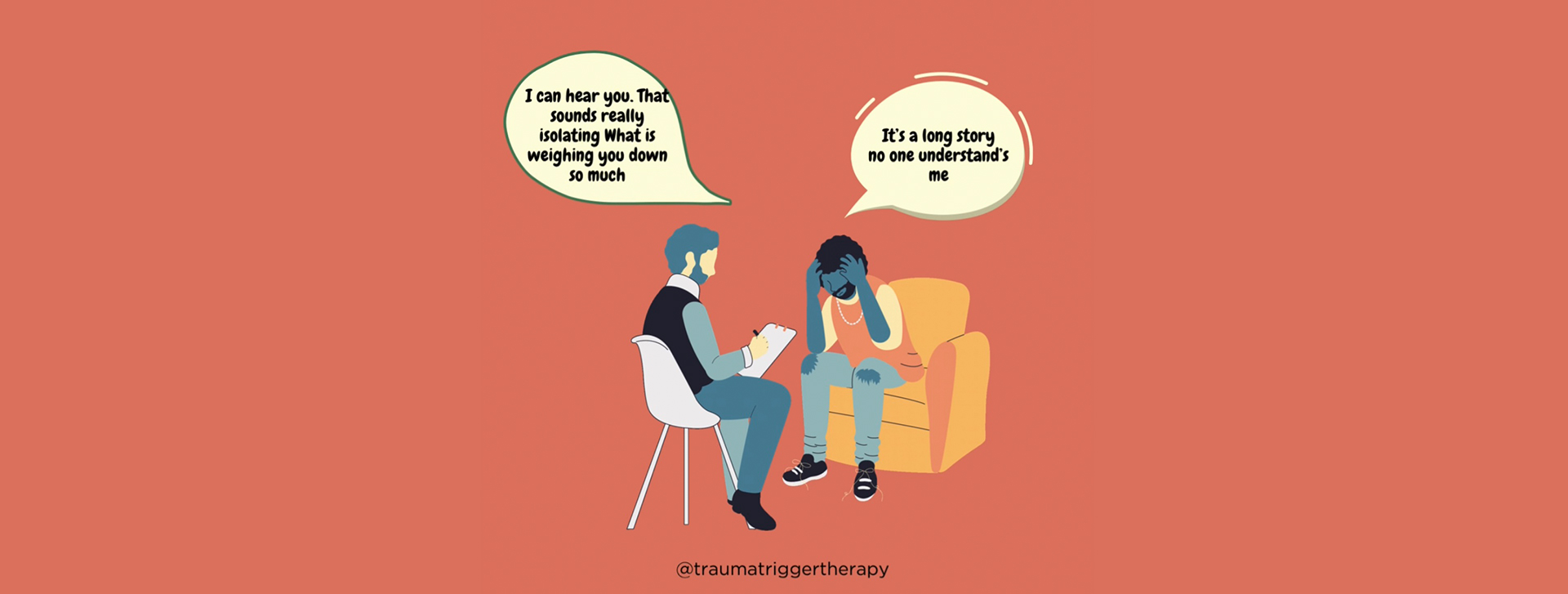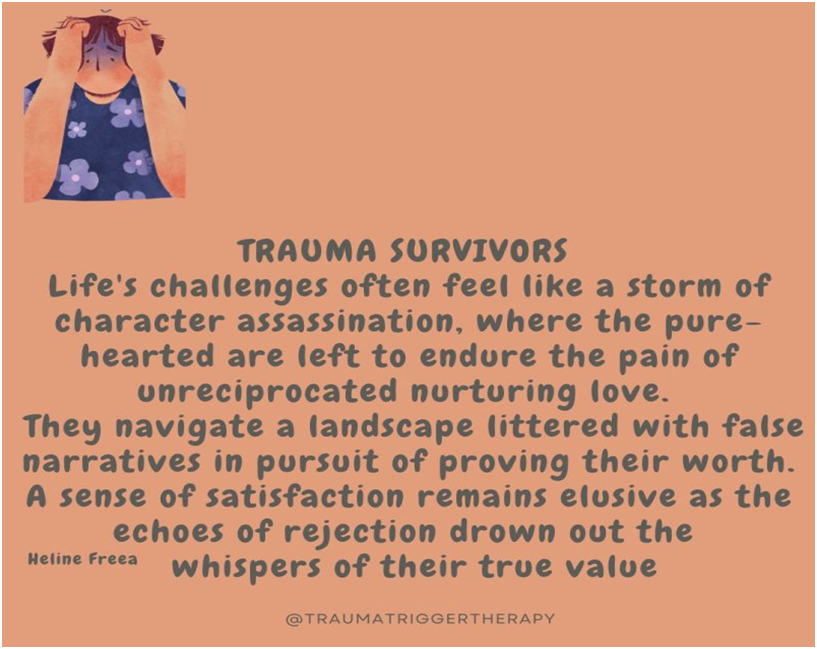
Navigating false narratives and negative beliefs.
Your life is your story, and the adventure ahead of you is the journey to fulfil your own purpose and potential.

Let your soul be your compass.
Living through false narratives often stems from earlier experiences of trauma, which can deeply shape our perceptions and beliefs about ourselves and the world around us. Trauma, whether from childhood experiences, relationships, or significant life events, can create a lens through which we interpret our reality. This lens may distort our understanding, leading us to adopt beliefs that are untrue or limiting.
For instance, a person who has faced neglect may internalize the narrative that they are unworthy of love or support. Similarly, someone who has experienced betrayal might develop a belief that trusting others always leads to hurt. These narratives can become so ingrained that they feel like the truth.
As we navigate life, these false narratives can hinder our growth and create a cycle of self-doubt and fear. They can prevent us from pursuing opportunities, engaging in healthy relationships, or even acknowledging our own strengths. Recognizing that these narratives are often rooted in past trauma is the first step toward dismantling them. By confronting and reframing these beliefs, we can begin to heal, reclaim our narratives, and embrace a more authentic and empowered version of ourselves. This journey requires courage, patience, and sometimes the support of others, but it is a vital path toward freedom and self-acceptance.
The trauma of false truths being spoken about you.
Constant character assassination and deception can have profound and lasting impacts on an individual’s mental and emotional well-being.
Growing up as a scapegoated child my childhood was marked by relentless ridicule, shunning, and a barrage of lies that deeply affected my self-esteem and sense of identity. This lad to feelings of shame, anxiety, and a pervasive sense of inadequacy, because unconsciously I internalised the negativity.
In such environments, the scapegoat often becomes the target of blame and negativity, regardless of their true character or actions.
When someone experiences ongoing attacks on their character—whether through gossip, manipulation, or betrayal—it can lead to a deep sense of chaos where the person begins to internalize negative perceptions and doubts about their worth and integrity.
Rediscovering your suppressed identity can take decades requiring lots of unbecoming who you were told you were.
How negative beliefs create cycles of fear and doubt:
Formation of Negative Beliefs.
Deeply ingrained thoughts and beliefs you hold about yourself.
Negative beliefs are deeply ingrained thoughts or assumptions that individuals hold about themselves, others, or the world around them. These beliefs often stem from past experiences, societal conditioning, or negative feedback from others. They can manifest as self-doubt, fear, and a lack of confidence, and they significantly impact one’s behaviour, emotional well-being, and overall outlook on life.
Early Experiences: Negative beliefs often originate from childhood experiences, such as criticism, trauma, or neglect. These experiences can lead to internalized messages that shape how individuals view themselves and their capabilities.
Social Conditioning. Cultural and societal influences can also contribute to negative beliefs. For instance, stereotypes or societal expectations can lead individuals to doubt their worth or abilities.
Reinforcement Through Experience.
Confirmation Bias:Once belief is established, individuals tend to seek out evidence that confirms it. This can create a feedback loop where negative beliefs are reinforced by experiences that validate them, leading to a distorted perception of reality.
Avoidance Behaviour Fearful of failure or rejection, individuals may avoid situations that challenge their negative beliefs. This avoidance prevents opportunities for growth and success, further entrenching the belief.
Emotional Responses.
Fear and anxiety. Negative beliefs often trigger fear and anxiety.
For example, believing “I am not good enough” can lead to fear of trying new things or taking risks, resulting in missed opportunities.
Self-Doubt:These beliefs create a constant state of self-doubt, where individuals question their decisions, abilities, and worth. This self-doubt can lead to paralysis in decision-making or a tendency to second-guess oneself.
Impact on Behaviour. Negative Self-Talk. Individuals with negative beliefs often engage in destructive self-talk, which can further challenge their self-esteem and confidence. This internal dialogue can perpetuate feelings of inadequacy.
Withdrawal and Isolation. Fear and doubt can lead individuals to withdraw from social situations or relationships, fostering feelings of loneliness and further reinforcing negative beliefs.
Increased Anxiety. As fear and doubt grow, individuals may experience heightened anxiety, which can make it even more challenging to confront or challenge their negative beliefs.
Avoidance of Challenges. The cycle continues as individuals avoid challenges that could disprove their negative beliefs, leading to missed opportunities for success and reinforcement of their fears.
Stagnation. Over time, this cycle can lead to personal stagnation, where individuals feel trapped in their negative beliefs, unable to break free and grow.
Breaking the Cycle
Awareness and Reflection. Recognizing and acknowledging negative beliefs is the first step toward breaking the cycle. Reflecting on their origins and questioning their validity can help individuals gain perspective.
Challenging Negative Thoughts. Actively challenging and reframing negative thoughts can disrupt the cycle of fear and doubt. This involves replacing negative beliefs with more empowering and realistic perspectives.
Seeking Support. Engaging with supportive friends, family, or mental health professionals can provide encouragement and help individuals confront their fears.
By understanding the nature of negative beliefs and their impact, individuals can take proactive steps to break the cycles of fear and doubt, fostering a more positive and empowering mindset.
👩❤️💋👨You deserve to be treated with kindness and compassion
You are worthy of love and respect just as you are.
🙏Your feelings and experiences are valid.
The process of becoming who you are is often a painful undoing of who you were told to be. Sometimes, you must lose yourself to find yourself.
A favourite saying of mine as I walk through life.
“Don’t judge me by the chapter you walked in on.”
For more interesting blog articles about trauma healing, recovery and mental health tips visit my linkeden page follow me Heline Freea.
© 2025 Heline Freea. All rights reserved.
